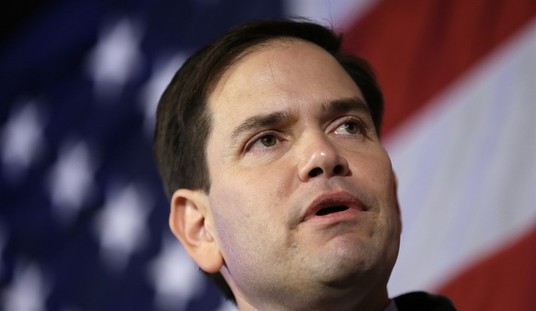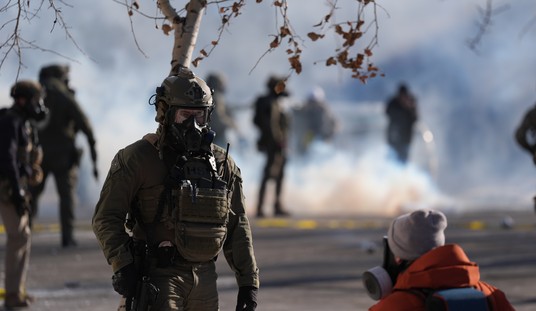Charles Krauthammer gets it right. He writes the following about the Cuba deal in his most recent column:
Obama brought back nothing on democratization, a staggering betrayal of Cuba’s human-rights crusaders. No free speech. No free assembly. No independent political parties. No hint of free elections. Not even the kind of 1975 Helsinki Final Act that we got from the Soviets as part of detente, granting structure and review to human-rights promises. These provided us with significant leverage in supporting the dissident movements in Eastern Europe that eventually brought down communist rule.
Indeed, on Tuesday — a short time after the dramatic announcement of a new Cuba policy — Cuban dissidents announced that the Castro regime has arrested leading opposition figures, and prohibited others from leaving their place of residence. They report:
Reinaldo Escobar was arrested when he left the building where he lives in the company of the activist Eliécer Ávila, founder of the group “Somos Más” (We are More). Both were handcuffed and put in a patrol car waiting in front of the building in the Havana neighborhood of Neuvo Vedado. Reinaldo’s daughter, Luz, who was with her father, has not been arrested, but a State Security agency told her, “We are not going to let you leave.” The same official visited Luz Escobar’s home yesterday to warn her not to go near the Plaza of the Revolution today, where the artist Tania Bruguera has scheduled a performance titled “Tatlin’s Whisper #6” for 3:00 in the afternoon, to demand freedom of expression for Cuban’s citizens.
The dissidents referred to the effort of a performance artist, Tania Bruguera, to assemble Cuban citizens in Revolution Square, the area in which the government holds its official rallies, and where for decades Fidel Castro harangued the crowds in the blazing sun during speeches that went on for hours. What Bruguera argued was that having average Cuban citizens come and express their hopes for the future was itself an artistic endeavor. As many people came to the site to participate, the dissidents reported that the police “also arrested …photographer Claudio Fuentes and his companion Eva Baquero. Social networks also inform us of the arrests of Antonio Rodiles, José Díaz Silva, Raúl Borges, Lady in White Lourdes Esquivel, and of the 14ymedio reporter Víctor Ariel González.”
With the foreign press present, including American TV networks, they let the famous Ladies in White demonstrate as they do every Sunday for the freedom of their families’ political prisoners held in Cuban jails. But the police immediately arrested Bruguera, for the audacity of her attempt to embarrass the regime with a public anti-government demonstration. Reinaldo Escobar confirmed that he saw Bruguera in prison “wearing the gray uniform of a convict.” The New York Times reported that the arrests were “the biggest move against the opposition in two weeks since the United States and Cuba announced they would renew diplomatic relations.”
Bruguera said the arrests “would test the climate for change in Cuba under the diplomatic thaw.” Bruguera herself will most probably be released, since she now lives in the United States in Corona, Queens, and regularly goes back to Havana, where she is running a workshop program for immigrants.
Clearly, two things are evident, as we’ll explore on the next page. The relaxation of pressure against Cuba will not lead to the flowering of democracy. Raul Castro publicly told Cubans that the government will not allow Communism to fail, and that the socialist revolution he and his brother began will continue. The regime’s measures remind me of what happened in the young Soviet Union in March of 1921, when Lenin instituted what he called “The New Economic Policy,” or NEP. The short-lived restoration of capitalism coincided with the regime creating a new wave of arrests and repression, necessary to maintain political control and to not allow a burst of entrepreneurship to undermine the Bolsheviks’ political control.
Nevertheless, it is also clear that the democratic opposition is trying to use the political space that has emerged to slowly build the rudiments of a civil society in which life is not controlled by the state and the secret police. As the photograph at the top of the article shows, they are holding meetings to plan their agenda for the future and let it be known that these sessions are taking place. That would have been unthinkable a decade earlier under Fidel Castro’s realm, when scores of writers and artists were arrested and forced to make public recantations, Soviet style.
At a meeting held on December 23rd, various opposition groups met and released a statement calling for “strengthening unity in diversity.” Thirty activists who held different points of view on various things agreed to try to create what they call a “Civil Society Open Space.” They expressed pleasure that as part of the new diplomatic deal with the United States, the regime released Alan Gross as well as “dozens of [their] compatriots.” One participant, Jose Daniel Farrar, stressed “the importance of building new scenarios for democracy.” Another dissident, Manuel Cuesta Morua, said that “the restoration of relations with the US represents ‘the end of the ‘epic’ stage and the beginning of the political stage for civil society.’” In their official statement, they put it this way:
-
We assume that the pressure from Cuban democrats within and outside the Island has contributed in a substantive way to the creation of this new scenario, and so we confirm that in the future we must expand the role of our civil society.
-
We must listen to, reflect, and give voice to what the Cuban people are feeling at this time and offer them a new narrative, tactics and strategy, and a new language.
Hence, some of the dissidents predict that the changes will eventually spell an end to Castroism. Jose Gabriel Barrenechea put it this way:
The unstoppable stream of information… will help the opposition transform into a more educated and flexible actor, which is ideal for these times in which we need politicians instead of heroes of resistance.
Writing from Warsaw, the dissident Jorge Calaforra points out that Raul Castro agreed to the deal because he seeks to avoid the collapse of his regime, and that “the resistance of the Cuban people to the update of the socialist economic system, which has not brought them benefits, is demonstrated by an emigration that is accelerating from year-to-year.” Calaforra writes:
Both Raúl Castro and Barack Obama have opened new opportunities, and we will have as much democracy in Cuba as we as a civil society are able to build.
We have had one of the most inhuman governments of all time. The groups close to the current halls of power are not going to disappear, nor will they want to renounce their benefits and Mafia methods, nor their secret tribunals.
The opposition’s hope, he writes, is that a civil society can emerge that will begin the transformation of Cuba in a direction that the regime greatly fears. The Cubans can, if they work for it, “take advantage of American money and know-how.”
If these opponents of the regime are to have a chance, we must pressure the Obama administration to not continue to give away the store, and to support the efforts of Senator Marco Rubio and others to prevent the embargo from being lifted.









Join the conversation as a VIP Member